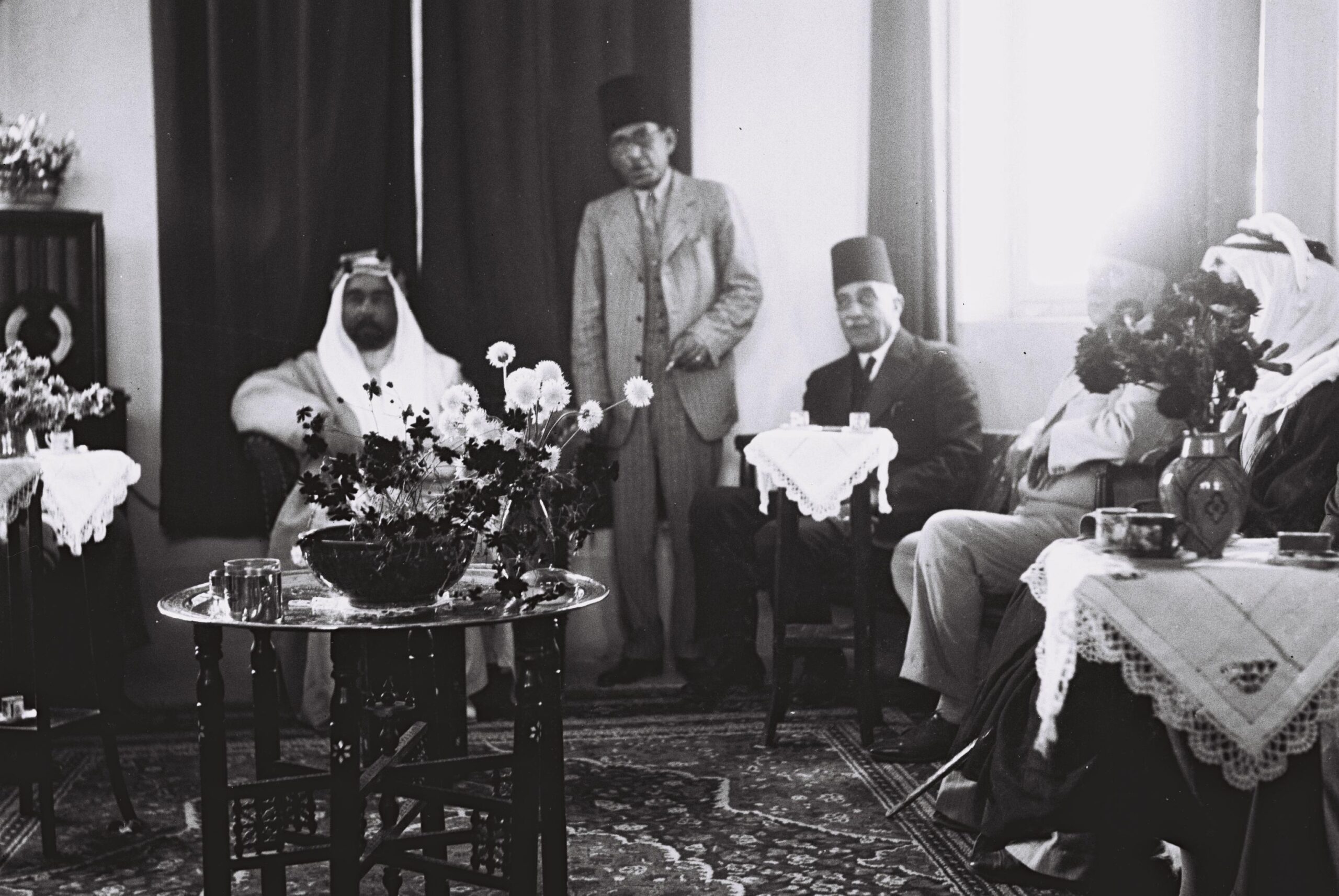Golda Meir Secretly Meets With King Abdullah in Amman

May 10, 1948
Just days before Israel will declare its independence, Golda Meir, then head of the Political Department of the Jewish Agency, travels to Amman to meet with King Abdullah of Transjordan. This is the second meeting between the two, with the first occurring in early November 1947 at Naharayim on the banks of the Jordan River.
Abdullah shares the Zionist leadership’s fear of a Palestinian state led by the Mufti of Jerusalem, Hajj Amin al-Husseini, emerging as a result of the U.N. partition decision. Contacts between then-Emir Abdullah and the Jewish Agency begin soon after he is appointed by the British in 1922. His brother Emir Faisal had come to an agreement with Chaim Weizmann in 1919 based on collaboration to achieve their mutual interests. That agreement was never realized.
Underlying Abdullah’s contacts and interest in cooperating with Zionist leadership is his desire for an expanded Arab state in the region. His “Greater Syria” plan envisages a unitary Arab state, under his leadership, encompassing Transjordan, Syria and Palestine. Abdullah hopes that in return for granting Jewish autonomy within his proposed kingdom, Zionist leaders will support his efforts and persuade the British to do so as well. Later contacts in the 1930s are aimed at improving Transjordan’s floundering economy. Zionist leaders consistently reject Abdullah’s proposals, preferring to seek their own state.
The British announcement that they will end the Mandate and turn the Palestine issue over to the United Nations gave King Abdullah renewed hope to expand his realm by taking over the Arab areas of Palestine. In the November 1947 meeting with Meir, he stated his intention to annex those area. Meir responded that the Zionist leadership would not oppose that plan if it meant that there would be no clashes between Jewish and Jordanian forces. Two weeks after that meeting, the U.N. General Assembly approved the partition of Palestine. Meir remained in contact with Abdullah but grew increasingly wary of the king’s plans as violence in Palestine escalated. In her autobiography, My Life, she writes, “Throughout January and February we maintained contact with Abdullah. … As the weeks passed, my messages became more worried. The air was thick with conjecture, and despite his promise to me, there were reports that Abdullah was about to join the Arab League.” (Meir, Page 216)
By the spring of 1948, it was clear that Abdullah was casting his lot with the other Arab states and was preparing to join in the fight against the Jewish state. Meir, at the urging of David Ben-Gurion, sought an additional meeting as a last effort to persuade Abdullah not to join the impending war. Meir explains why this is so critical: “Not only was the legion (Transjordan’s British-trained and -led army) by far the best Arab army in the area, but … if Transjordan stayed out of the war, it would be much harder for the Iraqi army to cross over into Palestine and join in the attack on us.” (Meir, Page 216)
Meir is accompanied to the meeting in Amman by Ezra Danin, a Haganah intelligence expert who has familial relationships with the king. Meir and Danin disguise themselves as an Arab couple and travel through enemy lines to Transjordan. She confronts Abdullah about breaking the promise he made to her in November 1947. The king explains that he is no longer able to act independently, that he is now “one of five,” referring to Syria, Egypt, Lebanon and Iraq. He urges the Zionist leadership to postpone the planned declaration of statehood as the only way to prevent war.
Reiterating his desire for expanded territory, he tells Meir, “But why don’t you wait a few years? Drop your demands for free immigration. I will take over the whole country, and you will be represented in my parliament. I will treat you very well, and there will be no war.” (Meir, Page 218)